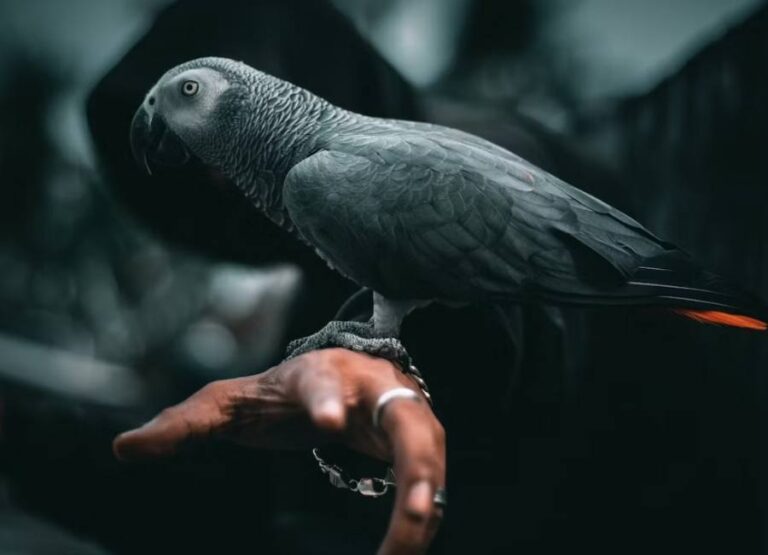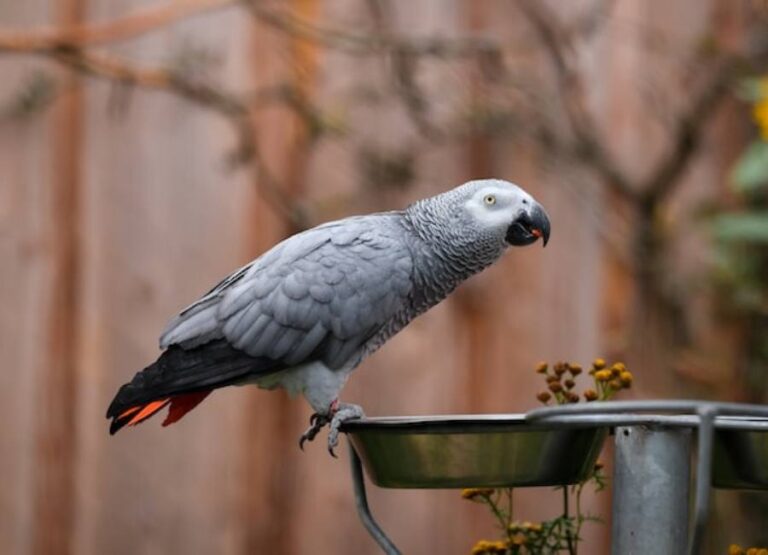10 Common Signs of an Unhappy African Grey
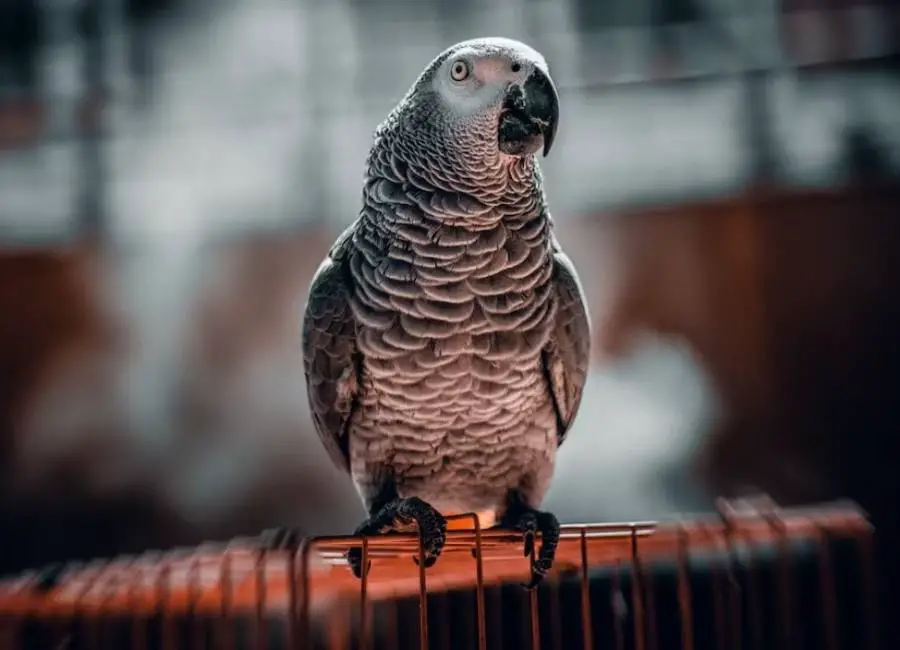
Are you a proud owner of an African Grey parrot? These intelligent and majestic birds are known for their incredible communication skills and ability to form strong bonds with their owners.
However, even the happiest of parrots can experience times of unhappiness and stress.
In this blog post, we will explore the signs of an unhappy African Grey and provide tips on how to keep your feathered friend healthy and content.
So, grab a cup of tea and settle in as we delve into the fascinating world of African Greys.
Let’s quickly outline things that can make your African grey parrot unhappy…
Things that make African Grey Parrots unhappy
Here are a few things that can make African Grey Parrots unhappy:
- Being left alone for long periods of time.
- Being housed alone without the company of other parrots.
- Lack of mental stimulation and enrichment in their environment.
- Inconsistent and inadequate care from their owners.
- Exposure to loud and stressful noises.
- Lack of proper nutrition and a balanced diet.
- Lack of exercise and opportunities for physical activity.
- Being subjected to harsh training methods or punishment.
- Being exposed to unfamiliar or unsafe objects and situations.
It is important to note that every parrot is different and may have individual preferences and needs, so it is crucial to provide personalized care and attention to ensure their well-being and happiness.
Signs of an Unhappy African Grey
Signs of an unhappy African Grey can include drooping wings, squinting eyes, and biting when angry or fearful.
It may also display a lack of appetite, a lack of vocalization, and general lethargy.
A stressed or unhappy African Grey may also pluck its feathers or exhibit other self-destructive behaviors.
It’s important to identify and address the cause of the bird’s distress to improve its overall well-being.
Let’s dig deeper…
The following are some of the most common signs of an unhappy African grey parrot:
1. Lack of Vocal Mimicry or Speech
The capacity of African Grey Parrots to replicate human speech and sounds is well known.
If your parrot abruptly stops talking or shows a considerable drop in vocalization, this could indicate sadness or a health condition.
To establish the source of their behavior, keep an eye on them and see an avian doctor.
Stress, a lack of mental stimulation, or changes in their environment can all have an effect on their vocal ability.
2. Changes in Sleep Patterns
Parrots are creatures of habit, and any dramatic changes in their sleeping patterns could be cause for alarm.
If your African Grey Parrot has trouble falling asleep, sleeps excessively, or exhibits restless behavior during the night, it could be a sign of discontent or an underlying health problem.
Examine their sleeping environment to ensure it is calm, dark, and devoid of distractions.
Seek advice from an avian veterinarian as soon as possible to treat this situation.
3. Destructive Behavior
In African Grey Parrots, boredom and dissatisfaction can lead to destructive behavior.
If your parrot begins chewing on furniture, or cage bars or exhibits excessive nest-building behavior, this could be a symptom of distress.
To redirect their energy and minimize harmful habits, provide a stimulating environment with plenty of toys, puzzles, and foraging activities.
To sustain their attention and present new challenges, rotate toys on a regular basis.
4. Unnecessary Feather Puffing
Parrots puff out their feathers on occasion to remain warm or rest.
If your African Grey Parrot is continuously puffy, it could suggest discomfort, illness, or dissatisfaction.
If you detect chronic feather puffing, consult an avian veterinarian because it could be a sign of an underlying health problem.
5. Self-Isolation
Unhappy African Greys behave similarly to humans, as they tend to retire and seek isolation.
If your parrot spends extended amounts of time alone, perched quietly in a corner of their cage, this could be a symptom of distress.
Parrots are very social birds who require company, make sure they have a pleasant setting where they may observe their surroundings and engage in activities.
Consider relocating their cage to an area where they can interact with the family and observe daily activities.
6. Decreased Interest in Social Interaction
Social engagement and mental stimulation are important to African Grey Parrots.
If your parrot becomes reclusive, avoids interaction, or loses interest in previously appreciated activities, this could suggest that they are unhappy.
Spend significant time with them engaging in interactive play and training sessions, and provide a variety of toys to keep their minds engaged.
Encourage positive socialization with trustworthy family members and, if possible, consider introducing them to other friendly parrots.
7. Aggressive Behavior
African Grey Is Dissatisfied Parrots can be aggressive against their owners or other family members.
Fear, anxiety, or frustration might manifest in biting, lunging, or hissing.
Aggression can be prompted by a number of circumstances, including a lack of sociability, insufficient mental stimulation, or a sense of threat in their environment.
It is critical to recognize triggers and concentrate on building a safe and happy atmosphere that builds trust and decreases anger.
Professional help from an avian behaviorist may be useful in dealing with aggressive behavior.
8. Excessive Vocalization
While African Grey Parrots are noted for their chattiness, unexpected or excessive vocalizations may signal discomfort.
If your parrot begins to scream excessively or makes distressed cries, it could be a cry for attention or a reaction to an unpleasant situation.
Keep an eye out for any changes in their vocalization habits and assess their environment for any stressors.
Engaging in interactive play, providing cerebral stimulation, and spending quality time with your parrot can all assist to reduce excessive vocalization.
9. Feather Plucking or Mutilation
Feather plucking or mutilation is an indication that an African Grey Parrot is dissatisfied.
When these parrots pluck or chew on their feathers, it frequently signals tension, worry, or boredom.
They may develop bald patches, break or chew feathers, or harm themselves.
Loneliness, a lack of mental stimulation, or a toxic environment can all trigger this behavior.
If you see frequent feather plucking, you should check with an avian veterinarian to rule out any underlying health issues.
10. Loss of Appetite
A abrupt shift in eating patterns is a sure sign of an unhappy African Grey Parrot.
If your parrot loses interest in their food or has a decreased appetite, this could indicate sadness or an underlying health problem.
Make sure to feed a healthy meal that includes fresh fruits and vegetables, pellets, and seeds.
If the appetite loss persists, consult an avian veterinarian to determine the cause and address any potential health issues.
How to keep an African grey parrot happy
African grey parrots are intelligent and social birds, and there are many ways to keep them happy and healthy.
Here are some common ways to keep an African grey parrot happy:
- Spend quality time with your bird – African greys love spending time with their owners, so make sure to give your bird plenty of social interaction.
- Provide plenty of toys – African greys are curious birds, so provide them with toys to play with and keep them mentally stimulated. Choose toys that are safe and appropriate for your bird’s size and personality.
- Offer a varied diet – Provide a balanced diet of high-quality pellets, fresh fruits and vegetables, and occasional treats.
- Teach them to talk – African greys are renowned for their talking abilities, so spend time teaching your bird to talk new words or phrases.
- Provide exercise opportunities – Allow your bird to fly in a safe and secure area, or provide climbing and perching opportunities in their cage.
- Avoid household toxins – Keep your bird away from household chemicals, such as bleach or ammonia, as they can be harmful to your bird’s health.
- Learn to read your bird’s body language – Understanding your bird’s body language can help you identify when they are stressed or upset, and address any issues promptly.
- Keep their living environment clean – Regularly clean your bird’s cage and provide fresh water for drinking and bathing.
- Take your bird for regular veterinary check-ups – Like all animals, African grey parrots require regular veterinary check-ups to maintain their health and well-being.
Find out more about how to identify a happy African grey parrot.
Frequently Asked Questions
How can I prevent my African Grey from becoming unhappy?
One way to prevent your African Grey from becoming unhappy is to provide a stimulating and enriching environment with plenty of interaction, toys, and mental stimulation. Additionally, ensuring they have proper nutrition and regular veterinary checkups can reduce the risk of illness and potential sources of unhappiness.
Can African Greys really get depressed?
Yes, African Greys are highly intelligent and emotional birds that have been known to experience depression and other negative emotions. It’s important to monitor your African Grey for any signs of unhappiness and address any concerns promptly.
How can I help my African Grey if they are unhappy?
Seeking advice from a veterinarian or an avian specialist can be helpful for determining the cause of your African Grey’s unhappiness and developing strategies to address the issue. Additionally, spending more time with your bird, providing new toys, and making changes to their environment can help alleviate feelings of unhappiness.
When should I be concerned that my African Grey is unhappy?
If your African Grey is exhibiting multiple signs of unhappiness and these behaviors persist for an extended period of time, it may be cause for concern. Consulting with an avian specialist or veterinarian can be helpful in determining the root cause of your bird’s unhappiness and developing a plan of action to address the issue.
Find out more about how to identify a sick African grey parrot.
Conclusion
In conclusion, it’s important to be aware of the signs of an unhappy African Grey parrot in order to ensure their well-being and happiness.
By paying attention to their body language, vocalizations, and behavior, we can better understand their needs and provide them with the care and attention they deserve.
Remember, a happy African Grey is a healthy African Grey!

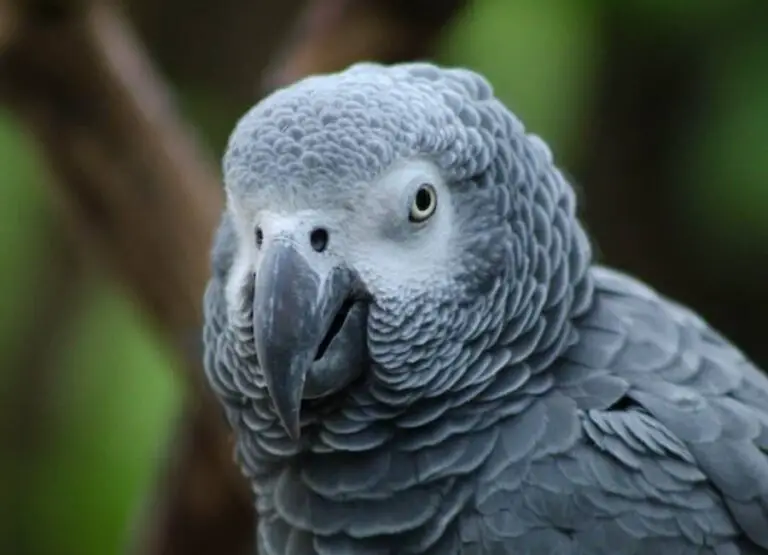
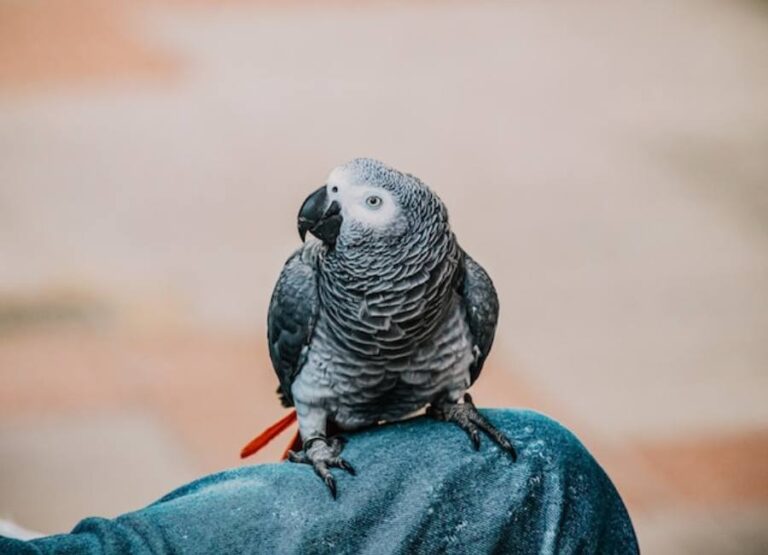
![Why is my African Grey Aggressive [11 Reasons] Why is my African Grey Aggressive](https://petcreeks.com/wp-content/uploads/2023/06/Why-is-my-African-Grey-Aggressive-768x555.jpg)
